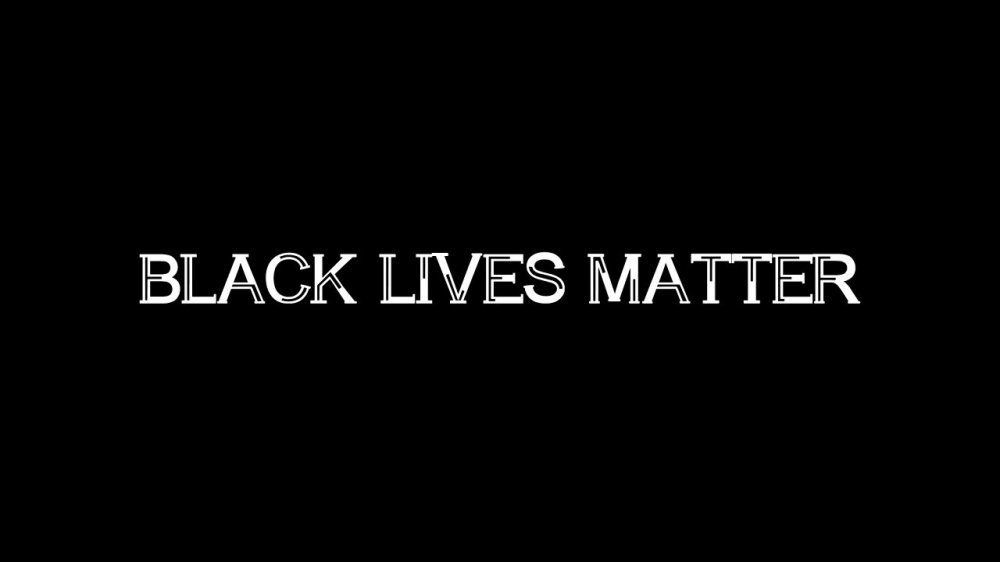Interview with Dr Katelin Hansen: MennoNerds on #BlackLivesMatter

Dr. Katelin Hansen is someone I deeply respect. Her work with the racial realities in the United States on her blog bytheirstrangefruit is a go to resource for me, even being from Canada. It is of particular interest to me as she is white, like me, and is very well grounded in what it means to be an advocate as a white person. It is complex, as she said in our preamble before the questions started flying “colonialism/racism was created by white people.” As I try to understand the #blacklivesmatter movement more in depth, and consequentially learn about racial realities in my country to have this conversation with someone as grounded and grassroots as Katelin is a complete pleasure. Her answers to my wonderings are gentle, challenging and inspiring. Please read, learn and act.
Chris: Thanks Katelin for your willingness to dialogue about the Black Lives Matter movement. It is deeply appreciated. For some of us Canadians, we don’t have a deep sense about what the Black Lives Matter movement is. We hear the occasional news story from “Big” media and some of us know the hashtag #BlackLivesMatter, but that is often the limit of our engagement. Being from a different country with different racial realities might be contributing to that I think. Can you share a little bit about the emergence of the movement and how it has impacted current social realities?
Katelin: I suspect a lot of people in the USA (especially white people here) also don’t have a great understanding of the Black Lives Matter (BLM) movement, which often leads to undue suspicion, fear, or anger. There is indeed a reticence to immerse ourselves in full engagement with what it being said, so much of the message is misunderstood, or missed entirely.
The phrase itself was coined in 2013 by Alicia Garza, Patrisse Cullors, and Opal Tometi, who after Trayvon Martin was killed, used it to respond to the anti-Black racism that was being made so apparent. The phrase began to pick up momentum even more after Michael Brown was killed, because as he lay in the street for over four hours, it demonstrated again that some lives simply mattered less than others in our society. As the month unfolded, it felt like we were hit with more and more evidence, often videoed live in the act, that Black lives don’t matter.
So ‘Black Lives Matter’ is powerful for the very reason that such a statement is needed at all. Because so often Black lives are treated as though the don’t matter, we are compelled to reaffirm that yes, yes, they do!! It does not mean “Black Lives Matter instead” or Black Live Matter only” but it is an affirmation that gives special cover to those who have not felt that truth from the society around them.
And what an indictment on the Church! This, the very institution charged with conveying and acting on the message that our lives matter to God, especially those treated as ‘the least of these.’ (The white church being by far the most culpable).
Thus, Black Lives Matter is a statement of commitment that we will work to ensure that our Black sisters and brothers are protected, respected, and empowered in our society, in a way that has never been the case to this point in USA history. I am not immersed in Canadian culture myself, but it wouldn’t surprise me if there were similar issues of injustice there as well, While I know the USA has a very particular and sordid history with race, power combined with prejudice is a mighty force that knows no borders.
Chris: Canada most certainly has a sordid history with race, power and prejudice. The Canadian history, and currently realities with Indigenous people is, well, terrible. I think this is why it is important for us to talk, because of the different contexts, yet similar racial realities. In common we both live in countries that are saturated with white privilege, and power.
For some of us in Canada, we have been embarking on a process which is called the “Truth and Reconciliation Commission.” The purpose is to reconcile Canadians with the injustice that occurred to Indigenous people through the Residential schools, which were more or less intended to assimilate Indigenous people into white, colonial, European culture which was masked and informed by a particular, power hungry Christianity. It was a process where survivors of Residential Schools would share their experience and add it to official record. It was a multiple city commission. I attended one session in Vancouver and was drastically changed. One thing I notice about the rhetoric here is that it is about truth telling, listening and reconciliation while moving toward a hopeful future. It is often framed int he context of a journey. This is certainly more complicated, but I am wondering how the engagement between the white people and power structures and BLM is being framed. What does it look like to move forward together?
Katelin: Canada does seem to be better engaged with the injustices surrounding its indigenous peoples than does the USA. One of the consequences of the USA’s particularly shameful history with its Black residents is that the injustices against other communities of color often go overlooked and underaddressed. A similar effect happens in other countries, with other populations. Even as Canada begins to address its sins against indigenous peoples, it often parallels the USA with regard to other racial groups as well. The focus is often on indigenous peoples (and much focus is needed!), but as this Rabble article notes, “collapsing Black struggles in the U.S. into Indigenous struggles in Canada actively erases Black/Afrikan struggles in Canada. It would be more appropriate to suggest that the Canadian corollary to Black struggles in the U.S. are specific Black-led struggles in our own country.”
As you mention, much listening is needed. Unfortunately, oppressed groups have been speaking up for years without much response from those in power. It seems it is only when things get rough that the media turns its attention–so what lesson does that teach? After centuries of being unheard, it reinforces the message that no one cares.
Chris: What does a hopeful future look like as the church engages BlackLivesMatter? Can you give an example or two of predominately white congregations working in a hopeful way? What advice would you give us as individuals who are look to support and work toward justice and hope in the midst of diversity?
Katelin: The acts of struggle and protest are themselves deep acts of faith and hope. If we did not have hope in a better future there would be no reason to press on and to continue engaging these issues. Because ours is a religion grounded in hope, being in the midst of these ast of hope is exactly where the church should be. Of all people, Christians believe that it will all turn out alright in the end and that God chooses to do the work of hope on the earth through the Church. As Dr. Christena Cleveland points out, hopelessness is a state of privilege. Too often, those in the dominant culture throw up their hands at a situation that the oppressed have been dealing with courageously for generations. Let us act on hope by engaging, by showing up, and by offering our support.
I confess it is difficult to point with confidence to predominantly white churches doing the work well. Not to say they don’t exist. There are certainly examples of churches opening their doors to marginalized communities and of pastors leading predominantly white churches that are leaning into the issues. But more often than not, once a white church fumbles through the early stages, and begins pushing down this path in earnest, they often find that they cannot truly do it well without fundamentally changing their composition (indeed I suspect this reality is what scares off so many churches from truly engaging!). A predominantly white church committed to the work or racial justice will soon find that the work can’t really be done if it is done in isolation from communities of color or without submitting to the leadership of those most affected. And then shortly thereafter it will find that it is no longer predominantly white. It’s better for their spiritual and institutional health that way anyway.
For those looking to support and engage in the work, I would suggest looking around and plugging into the work already happening in their area, particularly the work led by the marginalized and oppressed communities in question. It’s there, I promise. It’s just a matter of showing up, asking how you can be of service, and listening well to the answer. And educating oneself. It’s not the job of people of color to get earnest white people caught up on centuries of sociological thought and experience.
Chris: What is the consequence of churches being silent on matters of racism?
Katelin: I suspect you mean the white church’s silence (churches of color are rarely silent on racism, although perhaps underheard)? The consequences a dire and cut to very root of the Church’s existence on this earth. If we fail to speak up, we fail on so many axises: as a societal moral compass, as the hands and feet of Christ, as witnesses to God’s character, as spreaders of Good News. Both physical and spiritual lives are at stake. We destroy our witness and fail in our charge to love God’s people. As Spencer Perkins notes “white Christians’ decisions to choose comfort of their own race over the Christian ideals of brotherhood and oneness that our gospel so boldly preaches have undoubtedly weakened their witness to the African-American community.” James Cone concurs: “What is at stake is the credibility and promise of the Christian gospel.” He observes that ” “like most blacks of her time [Ida B.] Wells dismissed white Christianity as hypocrisy.” In her view, “our American Christians are too busy saving the souls of white Christians from burning in hellfire to save the lives of black ones from present burning in fires kindled by white Christians.” This effect continues today.When the white church is silent it is not only passively complicit in the deaths of millions, but actively contributes to the growing death toll going forward. In short, when the church is silent we fail to be the Church at all. We become known by the ‘strange fruit’ we bear.
Chris: Thanks so much Katelin. Please check out her blog: By Their  Strange Fruit
Strange Fruit
What are your questions about the Black Lives Matter movement in the United States? What do you find yourself thinking about after reading this interview?



